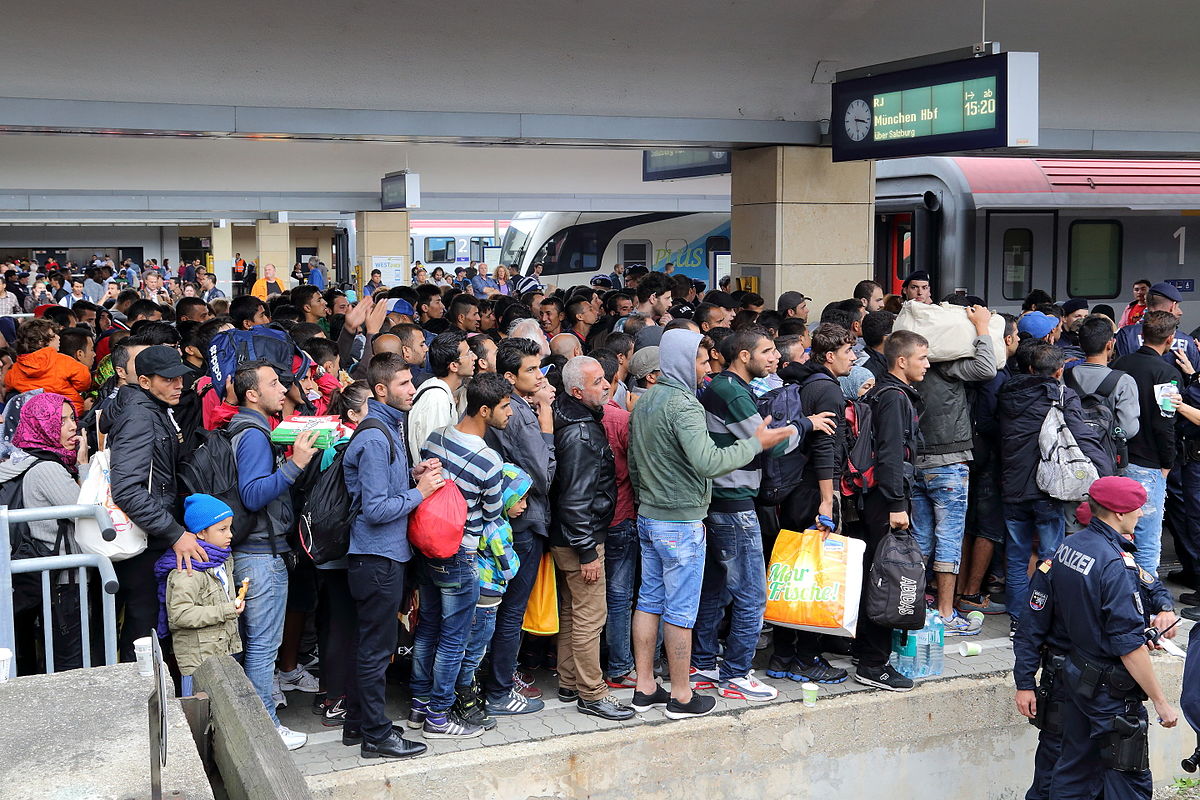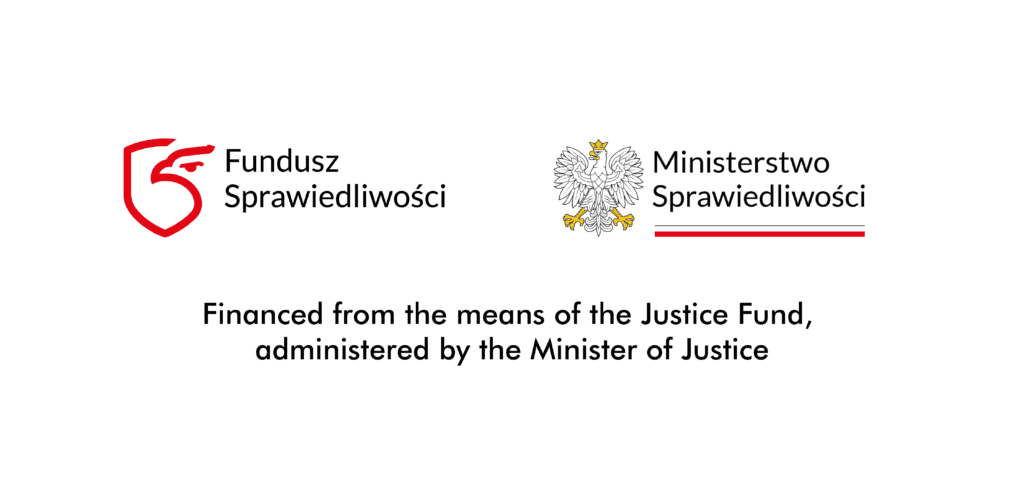European countries still reluctant to apply the real solutions to the migrant crisis

The surge in murders perpetrated by illegal immigrants has caused political leaders in the European Union’s west and north to noticeably change their rhetoric in the fall of 2023. Despite their efforts to remain politically correct, they are increasingly talking about sealing borders instead of the usual open-door policy. In other words, they seem increasingly willing to follow in the footsteps of Poland and Hungary, which they previously severely criticized for building border fences
Jacek Przybylski
The Italian island of Lampedusa is geographically part of the African continent, and for some time it has been the doorway to Europe for many African migrants. But such a dramatic situation as occurred on the sun-scorched island this year has never been seen before.
While the island has some 6,000 legal residents, in just one day in September, 7,000 illegal immigrants came ashore on ships and small boats at the small port of Lampedusa. Since the transit center was quickly completely overcrowded, the migrants set up camps on the wharves and occupied the port area, with many protesting the poor conditions in which they had to stay. By mid-September, the situation became so dire that the Lampedusa city council declared a state of emergency. The Italian government had meanwhile promised to speed up the process of transferring illegals into the country.
“In recent years, we have shown solidarity and hospitality. But now we are exhausted, and we have neither the facilities nor the logistical capacity to deal with such a large number of people asking for help,” Lampedusa’s Mayor Filippo Mannino told RaiNews TV. “Either we take the bull by the horns or we won’t solve this problem,” noted Italian Foreign Minister and Deputy Prime Minister Antonio Tajani, who warned in the daily Corriere della Sera that the problem is so great that it is now threatening not only Italy but the entire European Union.
His government colleague, Business Minister Adolfo Urso, warned bluntly on Sky TG24 that the fact that immigrants were arriving on Italian shores in such large numbers “highlights the existence of international interest networks aimed at attacking Italy.”
The Italians have lost any control over who comes to their country. According to the Interior Ministry in Rome, of the roughly 120,000 illegal immigrants who arrived in Italy between January and September, only a small minority accepted to be fingerprinted, and an even smaller proportion applied for asylum. Most prefer to go to Austria, France or Germany. They can do so at any time, as the reception centers are not prisons and people can leave them whenever they wish.
In response to the migrant invasion of Italy, border controls with that country were reinstated by France in September 2023. The Germans announced at the time that they were halting the “voluntary solidarity” procedure “until further notice.” From January through August of this year, 220,000 new asylum applications had already been filed in Germany, according to the Federal Office for Migration and Refugees (BAMF). About 60,000 were filed in Italy during the same period.
Italy is a transitional country for most migrants, who typically come from Algeria, Morocco, Egypt, Tunisia, Afghanistan, Bangladesh, and Syria. Nonetheless, this uncontrolled invasion of illegals from African countries resulted in the country being placed at terrorist threat level four on a five-step scale in the fall. Soldiers armed with automatic weapons while patrolling the streets of Italian and other Western European cities are an unknown sight – and a shocking one, indeed – to residents of most Central European countries, such as Poland for example.
The Swedes admit failure
Only the regular army, armed with automatic weapons, has any chance not only against potential terrorists but also against immigrant gangs on the streets of Swedish cities. The times when order in Sweden was easily kept by policemen armed only with batons have long been merely a fond memory. The situation has become so dramatic that, despite the political correctness that is still in place, politicians in that country have finally stopped hiding the fact that there is a clear connection between mass immigration and the gang wars that have turned ordinary Swedes’ lives into hell.
“Political naivety and lack of knowledge, irresponsible migration policies, and failed integration have led us to the situation we find ourselves in,” Swedish Prime Minister Ulf Kristersson admitted in September, promising in an address to the nation to use the military to fight the gangs of Muslims that have formed as a result of the migration policies of the Swedish Social Democratic Workers’ Party and the Greens, the coalition that was in office in Sweden from 2014 to 2022.
“We need to decide now what kind of Europe we want to be. My Europe welcomes refugees. My Europe does not build walls,” former Swedish Prime Minister Stefan Loefven said in September 2015. As a result, more than 160,000 migrants applied for asylum in that country of 10 million inhabitants in 2015 alone. In that same year, more than 100,000 newcomers were granted Swedish citizenship. Most of these new Swedes are from Syria, Somalia, Afghanistan, and Eritrea. They did not even need to know the language of their new homeland or pass a test proving their knowledge of its history to obtain Swedish citizenship.
But with what result?
Beginning in 2016, the Swedish police began including cases of shootings and explosions in their statistics. “Over the past decade, the number of gun deaths has tripled,” Prime Minister Kristersson has noted. In September of this year alone, 12 people were killed in Sweden as a result of shootings and the detonation of explosive.
The new prime minister has announced a reform of the penal code to allow the deportation of foreign criminals to their homelands. The new prime minister has also acknowledged that improving security on the Swedish streets will not be possible without tightening immigration policy. Long-term visitors are to be required to learn the language of their host country. The new government also announced an end to the policy of issuing rent money to immigrants for housing. Instead, special centers are being set up both for those who are only seeking asylum and those whose applications have already been denied.
The law has been modified so that Sweden is no longer a dream destination for migrants from Africa and Asia. The first effects can already be seen in the statistics. According to estimates by the authorities in Stockholm that were published in October, Sweden will process 13,000 asylum applications this year, which is 1,000 fewer than was estimated in June.
Fortress Europe?
The invasion of Europe by illegal immigrants has caused the number of violent acts – not only murders, but also robberies, rapes and thefts – in Western European countries such as Italy, France, and Germany to rise sharply over the past decade. The proportion of residents of Berlin, Paris, and Rome who are afraid to leave their homes after dark is growing rapidly.
Bringing troops out onto the streets, however, is a way of treating the symptoms, rather than the causes of the problem. According to official data, half a million people sought asylum in EU countries in the first six months of this year, which is almost a third more than in the same period of 2022.
During the September migrant invasion of Lampedusa, the island was visited by the President of the European Commission, Ursula von der Leyen, who just two years ago insisted that “there [would] be no funding of barbed-wire and walls.” But she finally admitted that European borders must be defended.
German Chancellor Olaf Scholz has also become more assertive on migration, admitting in an interview with Der Spiegel in October of this year that “too many” migrants are coming to his country. In the same interview, Scholz conceded that the EU’s external borders must be protected and that the authorities in Berlin have to put procedures in place to “deport more and faster.”
For the time being, declarations by Western politicians have yet to be followed by any action, but the change in rhetoric is very clear. And it is not only Germany that is moving away from the open door ideology embodied by Chancellor Angela Merkel, but also its biggest allies during the 2015 migration crisis, who naively saw in the giant wave of economic migrants a way of meeting their labor markets’ needs and solving the problem of an aging Europe.
In the footsteps of Hungary and Poland
“When we said in 2015 that migration was a threat, we were nearly crucified,” said Hungarian Prime Minister Viktor Orbán in late October of this year, noting that most EU leaders now share Hungary’s position from eight years ago.
Physical barriers have since been erected not only by the Hungarians along their border with Serbia, but also by Poland, Lithuania, and Latvia along their border with Belarus; Greece along its border with Turkey, and Austria along its border with Slovenia. It is precisely because of concerns about the influx of thousands more illegal immigrants that the authorities in Vienna have refused to allow Romania and Bulgaria to join Europe’s Schengen Zone.
Hungary’s EU Affairs Minister János Boka noted in an interview with the German daily Die Welt which was published in late October 2023, that while the EU’s stance on the need to “protect the EU’s external borders” has moved closer to the line presented in Budapest, the solutions promoted by Western politicians still have no chance of effectively reducing the number of migrants reaching Europe. Indeed, Boka said, the debates waged by EU politicians are still “not aimed at allowing into the European Union only those who have previously obtained the right to come.” According to the Hungarian minister, the Migration Pact promoted by Germany will not only fail to solve the problem, but will exacerbate it. After all, he insisted, if everyone who reaches Europe is allowed to stay on the Old Continent, this will provide a “strong incentive” for many more migrants.
Boka stressed in this interview the importance of bilateral agreements with African and Middle Eastern countries, under which those countries would accept illegal immigrants that are sent back from Europe. Such a solution has also been advocated for years by the authorities in Warsaw, which like Hungary opposed the relocation mechanism that was being forced through at the EU level in 2015. However, as the Hungarian EU minister noted, a similar position on migration is held today not only by Hungary and Poland, but also by the Czech Republic, Slovakia, Austria, and Denmark.
A barge instead of expensive hotels
One thing Brexit has not solved is Britain’s migrant problem. Instead of paying for hotels for those waiting for their asylum applications to be processed, the government in London has decided to house them on a barge.
Moored in the port of Portland in the south of England, the Bibby Stockholm is expected not only to cut costs, but also, thanks to its modest conditions, to discourage more migrants from trying to enter the United Kingdom illegally via the English Channel. The move is controversial, but Rishi Sunak’s government has said it plans to hire more barges. It also wants to put migrants in former military bases.
The British government spends about £5.5-6 million each day to accommodate the more than 50,000 migrants housed in hotels this year. From January to August 2023, more than 15,000 people entered the UK illegally via the English Channel. For the whole of 2022, the UK recorded the arrival of more than 45,000 illegal immigrants (60 percent more than in 2021).
Deportations on paper
Europe’s biggest problem is that the authorities of individual countries have completely lost control over what happens to those illegal migrants who are on their territory. Orders to leave the Old Continent that are issued to criminals who have illegally entered the Union are often not enforced.
A symbolic example of the European governments’ ineptitude was the case of a 45-year-old Tunisian man who, in mid-October of this year, shot dead two defenseless Swedish soccer fans in Brussels in cold blood and seriously wounded a third while shouting “Allahu akbar.” Before the armed jihadist terrorist was killed by police bullets during an attempted arrest in a Brussels cafe, Abdesalem Lassoued managed to record a propaganda video boasting that he was a “fighter in the path of Allah” and that he had “killed three Swedes.”
The Tunisian, who entered Europe illegally by sea, was suspected by the Italian intelligence of having engaged in terrorist activities and human smuggling as early as 2016. He applied for asylum in Belgium in 2019. His application was denied and he was ordered to leave the country in 2020. The Belgian authorities then lost sight of him. Before he murdered those innocent Europeans, he also sought asylum in Italy, Norway, and Sweden, where he served a two-year sentence in prison for drug trafficking.
Many politicians and experts are skeptical that plans for faster and more effective deportations of illegal immigrants whose asylum claims have been rejected can be implemented quickly.
As Nicolas Monti, the co-founder of the Observatoire de l’immigration et de la démographie, noted at an international conference in Budapest at the end of September 2023, currently as many as 96 percent of migrants whose asylum claims have been rejected remain in France. Meanwhile, three-quarters of the French openly declare in surveys that there are too many immigrants living in their country, while 67 percent of respondents fear the so-called “Great Replacement,” i.e. the replacement of the native population by immigrants coming primarily from Muslim countries.
The Swedish authorities, too, despite abandoning their pro-immigrant rhetoric, are still failing to expel convicted criminals that have been sentenced to deportation by the courts. As the weekly Focus reported in the fall, the authorities have no idea where dozens of immigrant criminals are currently hiding, with some 700 awaiting deportation to their countries of origin.
And while more and more politicians and commentators acknowledge that countries such as Hungary and Poland were right about migrants, and that the solutions for stopping Europe’s invasion by hundreds of thousands of people from Africa, the Middle East and South Asia are widely known, there is still a lack of political will in many EU countries to implement them.




